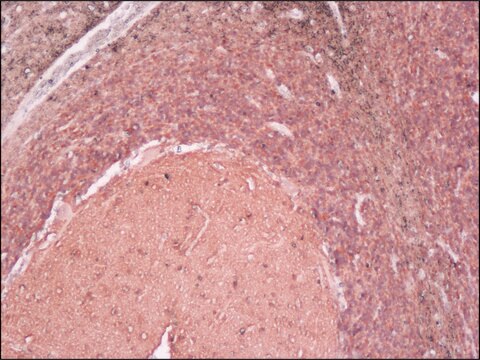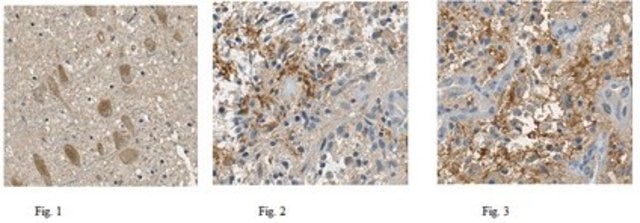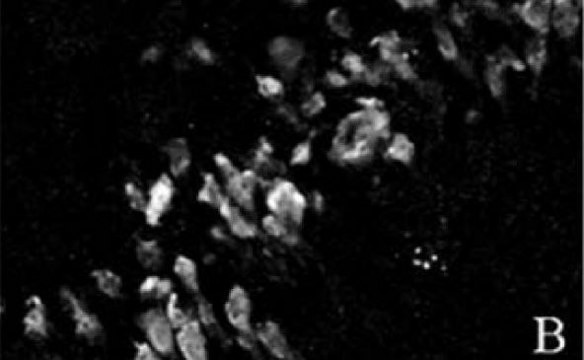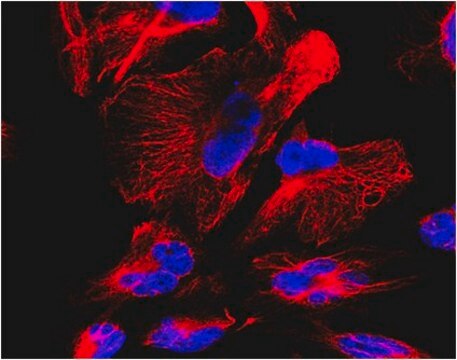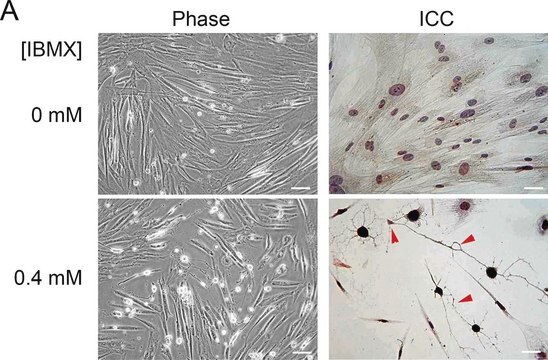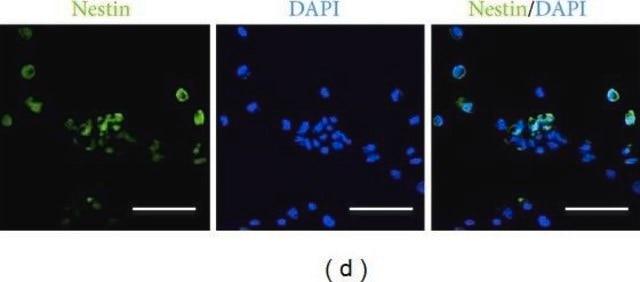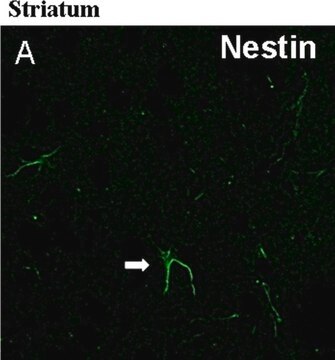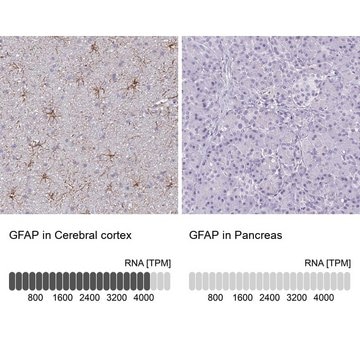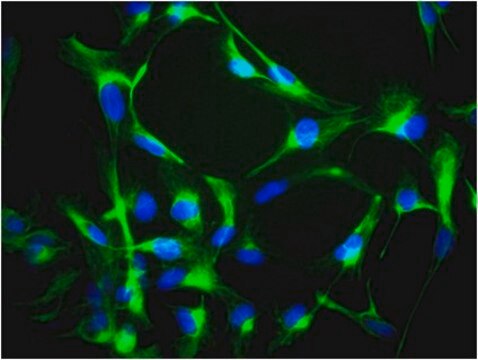AB9698
Anti-Neuron Specific Enolase (NSE) Antibody
Chemicon®, from chicken
About This Item
Recommended Products
biological source
chicken
Quality Level
antibody form
affinity isolated antibody
antibody product type
primary antibodies
clone
polyclonal
purified by
affinity chromatography
species reactivity
mouse, human, rat
manufacturer/tradename
Chemicon®
technique(s)
immunocytochemistry: suitable
immunohistochemistry: suitable
western blot: suitable
NCBI accession no.
UniProt accession no.
shipped in
wet ice
target post-translational modification
unmodified
Gene Information
human ... ENO2(2026)
Specificity
Immunogen
Application
Immunocytochemistry: 1:50-1:100 using 2% paraformaldehyde fixed cells.
Western blotting: On mouse brain extracts, blot shows a single band at 47 kDa.
Optimal working dilutions must be determined by the end user.
Neuroscience
Neuronal & Glial Markers
Linkage
Physical form
Storage and Stability
Other Notes
Legal Information
Disclaimer
Not finding the right product?
Try our Product Selector Tool.
wgk_germany
WGK 2
flash_point_f
Not applicable
flash_point_c
Not applicable
Certificates of Analysis (COA)
Search for Certificates of Analysis (COA) by entering the products Lot/Batch Number. Lot and Batch Numbers can be found on a product’s label following the words ‘Lot’ or ‘Batch’.
Already Own This Product?
Find documentation for the products that you have recently purchased in the Document Library.
Our team of scientists has experience in all areas of research including Life Science, Material Science, Chemical Synthesis, Chromatography, Analytical and many others.
Contact Technical Service